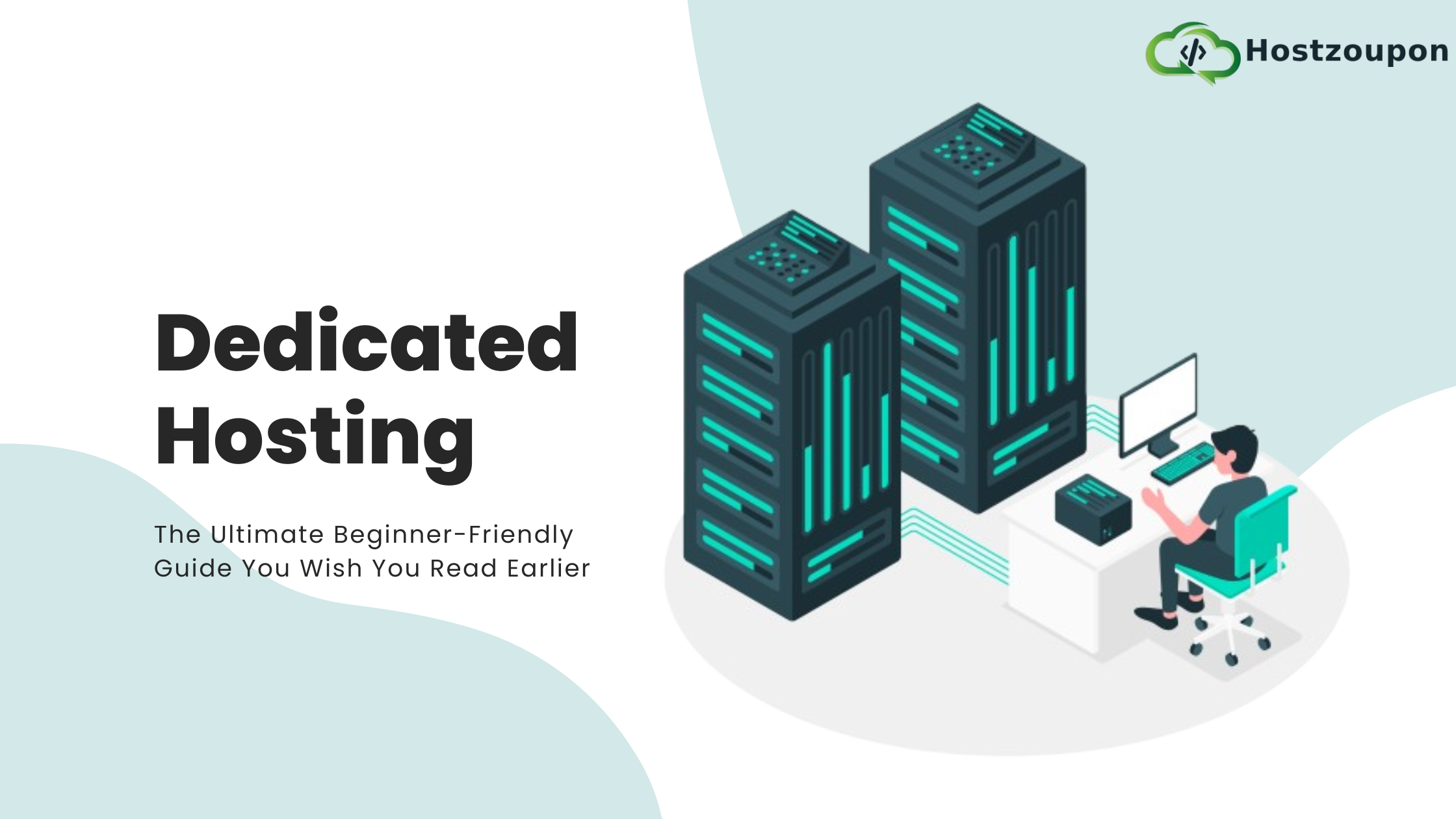The Ultimate Guide to Dedicated Hosting:
What It Is, Who It’s For, and Why It Matters?
So, What Exactly Is Dedicated Hosting?
Let’s start simple. Imagine the internet is a vast city, and every website is a building. Web hosting is the land your building sits on. In most cases, like shared hosting, you’re renting a flat in an apartment complex with noisy neighbors and limited space. But with dedicated hosting, you own the entire skyscraper. The whole server is yours – all the CPU power, bandwidth, memory, and storage.
That means better control, better performance, and better security. But also a bigger responsibility.
With dedicated hosting, a provider leases you an entire physical server dedicated to your website (or websites). You’re not sharing resources with anyone else. You have full control over the server environment: the operating system, hardware configuration, and security systems. It’s a premium suite of hosting, built for serious business.
Why Dedicated Hosting Even Exists
Because some websites grow big and complex.
We’re talking about:
- Large e-commerce platforms with thousands of transactions per day
- Online marketplaces
- Media-heavy platforms (video streaming, large file downloads)
- SaaS applications with high uptime and fast response demands
- High-traffic blogs or publications
Shared or VPS hosting might have served them well in the early days. But as performance demands grow, downtime becomes costly, and customization needs deepen, dedicated hosting becomes the smart, scalable, and professional choice.
What Makes Dedicated Hosting So Powerful?
Let’s break it down. Dedicated hosting gives you:
1. Full Resource Allocation
No other site is leeching your memory, CPU, or bandwidth. You’re not squeezed into a box with limits. Need more RAM or disk space? Configure it.
2. Consistent High Performance
Expect lightning-fast speeds even during traffic surges. You can tune your server for the specific demands of your application.
3. Deep Customization
Choose your OS (Linux, Windows), control panel (cPanel, Plesk), software stack (Apache, NGINX), and firewalls. You decide how the environment behaves.
4. Enterprise-Level Security
Install your own security protocols. Set up intrusion detection, firewalls, SSL configurations, and monitoring tools that go beyond what shared hosting allows.
5. Root Access & Admin Privileges
Install custom apps, fine-tune server settings, schedule cron jobs, or write scripts. You have the keys to the kingdom.
Is Dedicated Hosting Right for Everyone?
Not really. Dedicated hosting is overkill for most small websites, personal blogs, or low-traffic landing pages.
But it’s invaluable for:
- Agencies hosting multiple client sites
- Enterprise-level businesses
- Developers building complex systems
- Projects that require strict compliance (HIPAA, GDPR, etc.)
If speed, uptime, and control directly affect your revenue, you should seriously consider going dedicated.
Real-World Example: The Case of RapidGrocer
Let’s say you run an ecommerce brand called RapidGrocer.
At launch, you used shared hosting. Cheap and quick. But then sales started pouring in. Product pages slowed down. Cart abandonment increased. Checkout timed out during festive sales.
Switching to VPS helped… temporarily. But when you expanded into international markets and ran video ads, your server couldn’t keep up.
So you moved to dedicated hosting. Boom.
- 100% uptime during Black Friday
- Faster image loading
- Personalized server configuration to integrate your ERP system
- Bulletproof backups and firewall
Now, your tech team sleeps better. And customers don’t bounce.
What to Look for in a Dedicated Hosting Provider
Not all dedicated hosting is created equal. Here’s what to watch for:
- Hardware Specs: CPU cores, RAM, SSD vs HDD, RAID configuration
- Bandwidth Allocation: Unmetered is ideal
- Server Location: Close to your target audience
- Support: 24/7 chat + phone + ticket with server-level expertise
- SLA (Service Level Agreement): Uptime guarantee, response times
- Scalability: Can you easily upgrade or clone servers?
- Security Add-ons: DDoS protection, physical data center security, monitoring tools
Managed vs Unmanaged Dedicated Hosting
If you’re not a server wizard, opt for managed dedicated hosting. That means your host handles the technical stuff: updates, security patches, monitoring, and even server tweaks.
If you’re hands-on, love configuring environments, and have in-house sysadmins, unmanaged may give you more freedom (and save you money).
The Price Factor: Is It Worth It?
Dedicated hosting isn’t cheap. Expect prices to start from $80/month and go beyond $500/month depending on the configuration.
But when weighed against the cost of lost sales, poor SEO rankings, or compromised data? It’s an investment, not an expense.
For many high-stakes businesses, it pays for itself in the first month.
Final Thoughts: Own Your Digital Foundation
Dedicated hosting is like building your digital HQ on solid ground. It’s not about just going bigger – it’s about going better.
If you need control, customization, and consistent performance, don’t think of it as a luxury. Think of it as a necessity.
Own your server. Own your uptime. Own your experience.








